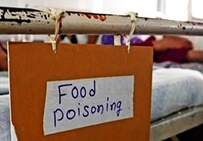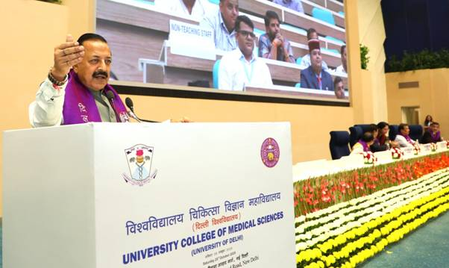
New Delhi, Aug 21 (IANS) Herbal tobacco cessation products have an unregulated market on e-commerce platforms such as Amazon, Flipkart, Blinkit, revealed a new study led by the Indian Council of Medical Research (ICMR)-National Institute of Cancer Prevention and Research (NICPR).
Herbal tobacco cessation products (HTCPs), which are mainly herbal capsules, lozenges, gutkha substitutes, powders, and herbal smokes, are being increasingly marketed as natural and safer alternatives to conventional pharmacotherapy.
“Herbal tobacco cessation products are widely available on Indian e-commerce platforms with unverified health claims and minimal regulatory disclosure,” said corresponding author Dr Prashant Kumar Singh, scientist at ICMR-NICPR.
“This poses significant consumer protection and tobacco control challenges. Strengthened oversight, claim verification, and policy alignment with the WHO Framework Convention on Tobacco Control guidelines are urgently needed,” he added.
The researchers noted that there is little regulatory oversight or evidence on their safety and effectiveness.
The research, published in the BMJ’s Tobacco Control journal, identified 316 unique HTCPs across 5 major Indian e-commerce platforms — Amazon, Flipkart, Blinkit, JioMart, and Meesho.
A small fraction (0.5 per cent) referenced the WHO affiliation, raising concerns about potentially misleading endorsements.
In addition, 43.7 per cent of products promoted ancillary health claims such as detoxification or anxiety relief.
Only 12 per cent of products displayed age restrictions, and none had functional age verification mechanisms.
The team assessed the availability, affordability, claims, and regulation of HTCPs, and screened product listings, categorising them by product type, claimed indications, presence of disclaimers, regulatory approvals, and pricing.
They found the products were marketed in three primary formulations: combustible products (42.7 per cent), raw herbal preparations (34.5 per cent), and other formats such as gummies, drops, capsules, and patches (22.8 per cent).
Products featured diverse flavours (eg, apple, paan, gulkand) and varied widely in pricing (Rs 15- Rs 1,467), with premium pricing concentrated on Amazon.
Notably, 62.3 per cent of these products carried at least one certification or quality claim. This included the International Organisation for Standardisation (23.4 per cent), ayurveda, yoga and naturopathy, unani, siddha, and homoeopathy (20.3 per cent), Good Manufacturing Practice (15.2 per cent), and Food Safety and Standards Authority of India (13.2 per cent), the study showed.
–IANS
rvt/




